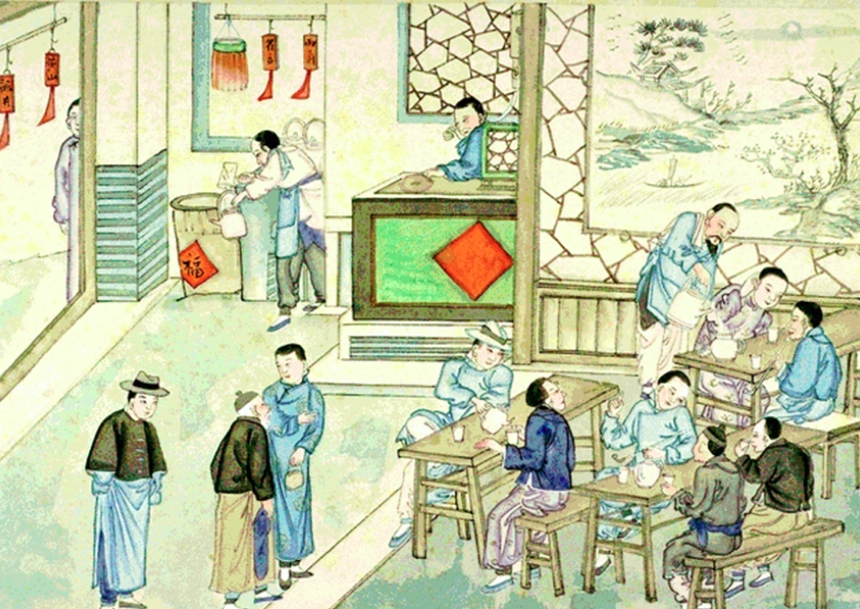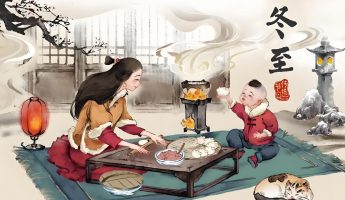Folklore, also known as ethnic cultural heritage, is a cultural phenomenon gradually formed and inherited by a specific ethnic group in the long river of history. In short, they are the wisdom and customs of life passed down to us by our ancestors. Our ancestors warned us through their experiences that being a person is not without taboos, but rather there are many taboos in life that we need to pay attention to.
1.Do not discipline your child before meals and refrain from scolding your wife before bedtime.
Avoiding blaming children before meals is partly to avoid affecting their appetite and physical and mental health; On the other hand, it is also to maintain a harmonious atmosphere of family happiness during meals. Therefore, it is very reasonable to choose the appropriate time for educating children.
Not scolding one’s wife before bedtime emerged in the ancient society where men were superior and women were inferior. At that time, it was common for husbands to scold their wives when arguing. However, whether in modern or ancient times, disputes should be avoided before bedtime. Because arguments before bedtime may lead to emotional excitement, and the flow of qi and blood is not smooth during sleep. If one lies down to sleep after arguing, it is easy to cause qi stagnation and blood stasis, leading to various diseases.
2.Master and disciple do not sit, uncle and nephew do not drink.
The mismatch between master and disciple reflects the traditional concept of hierarchical hierarchy. The ancient saying goes, ‘One day as a teacher, one lifetime as a father.’ There is a difference in seniority between a master and a disciple, so it is not advisable to sit at the same table. In modern times, there is also a tradition of dividing the table between elders and juniors during family gatherings or large banquets.
Uncle and nephew do not drink properly. Here, ‘drinking’ does not refer to ‘drinking’, but to cooperation. In ancient times, uncles usually did not cooperate with their nephews when they had good livelihoods, because for uncles, nephews’ mothers were outsiders. Once a nephew is reprimanded for doing something wrong, he may express his dissatisfaction to his mother, who often favors his own child, which may lead to misunderstandings and damage to family relationships. Therefore, in ancient times, men often led their nephews to do things because their nephews’ mothers were their own sisters. In case of conflict, they would not be too partial to one party, nor would they alienate the relationship.

3.If melon fields do not accept shoes, Li Xia will not straighten his crown.
The literal meaning of this sentence is, do not bend down and lift your shoes in the melon field, so as not to be mistaken for stealing melons; Do not raise your hand and hat under the Li tree to avoid being mistaken for stealing Li. Now, this sentence is used to metaphorically describe avoiding situations that may cause misunderstandings, in order to avoid unnecessary trouble.
4.Father doesn’t have beard, mother doesn’t celebrate her birthday.
The custom of ‘Father leaving no beard’ was formed during the Xinhai Revolution to break the feudal system. At that time, men’s beards and braids were shaved off, and parents were not allowed to grow beards while they were alive. If the father passes away, leave a beard and lip; If my mother passes away, I will grow a chin and beard; After both parents pass away, they will grow beards on both their upper and lower lips.
It is easier to understand that ‘the mother is not celebrating her birthday’ because people often say ‘the child’s birthday is the mother’s difficult day’, and the mother experiences great pain on the day of the child’s birth. It is obviously inappropriate to hold a big banquet to celebrate on this day.
5.When hitting someone, do not slap their face, and when cursing, do not expose their shortcomings.
‘When hitting someone, don’t slap their face’ means that face represents a person’s dignity. Even if two people fight, they should not slap each other’s face. Once they slap each other’s face, it involves issues of dignity. The things on your face cannot be covered up, and the person who was beaten has lost face. Naturally, they will hold a grudge against you.
The term ‘short’ in the phrase ‘cursing without revealing one’s shortcomings’ refers to personal deficiencies, including physiological, behavioral, and ideological deficiencies. When criticizing others, one should focus on specific mistakes rather than exposing their privacy or pain points, especially in public places where language is more important. Many seeds of resentment are planted in a short period of time when people are exposed.
6.Don’t talk about dreams in the morning, don’t talk about killing in the afternoon, and don’t talk about ghosts at night.
This is a concept of Taoism. Morning is the beginning of the day, suitable for planning and arranging affairs, striving for perfection, so don’t come up and talk about things from your dreams; Noon is the time of the day when Yang energy is at its strongest, so it is contrary to common sense to say ‘kill’; At night, the Yin energy is heavy, so it is advisable to avoid discussing topics such as ghosts to avoid bringing bad luck.
7.Do not give umbrellas for happiness, and cigarettes for longevity.
This sentence is actually a pun that everyone particularly understands.
The homophone between “umbrella” and “scatter” implies bad luck. When a newlywed is overjoyed, people hope to spend their whole life together and grow old together. Letting someone scatter is definitely unlucky;
The homophone between “smoke” and “throat” means that when an elderly person passes their birthday, they are most averse to words related to death. Therefore, in folk customs, cigarettes cannot be given on their birthday.



